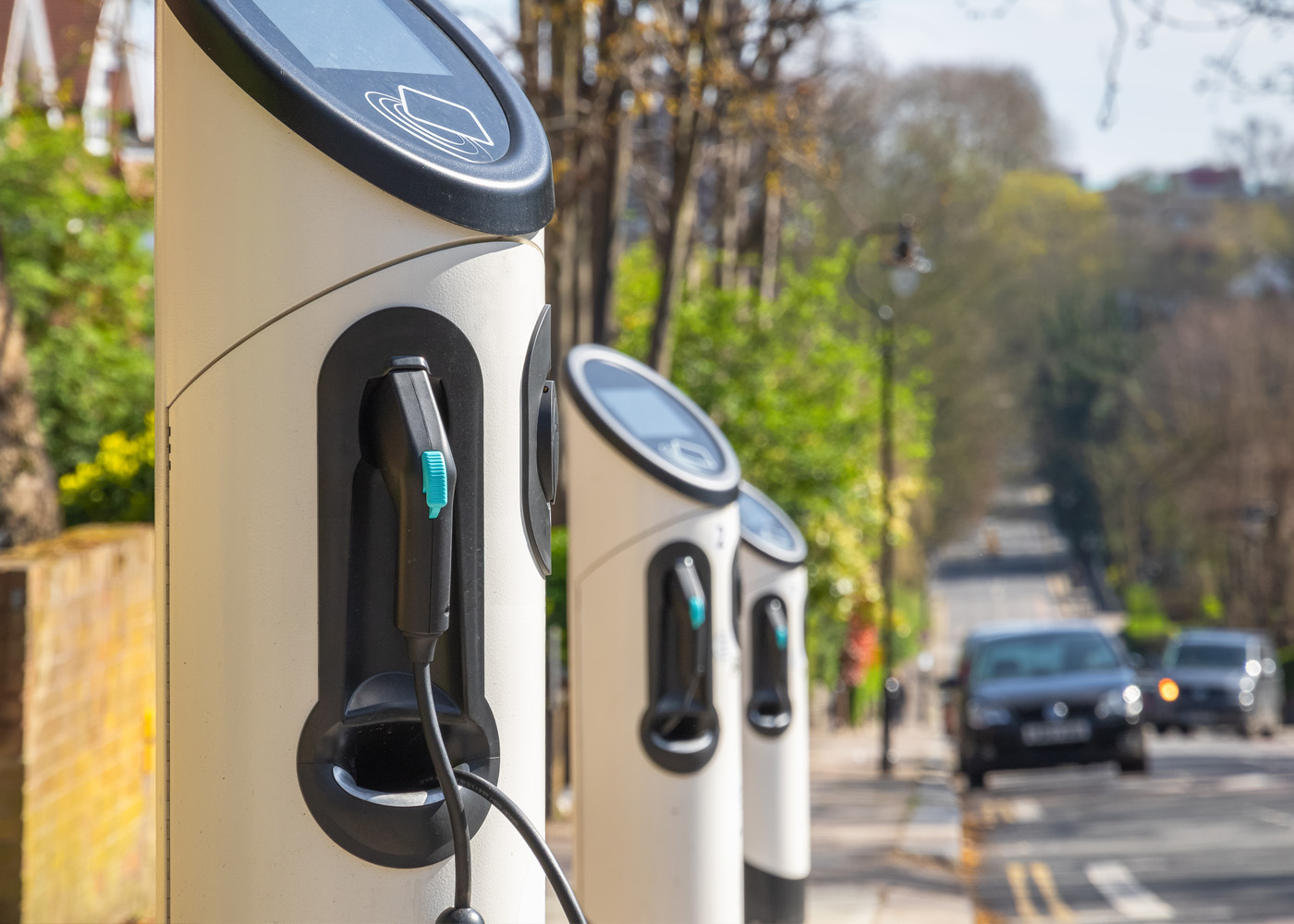S h a r e
Fleet Alliance welcomes growth in charging infrastructure


Posted by
Kevin Blackmore
June 2022
Fleet Alliance has welcomed news that the UK charging infrastructure has grown in the last 12 months and there are now enough charge points, both public and at work, to cater for the growing numbers of EV drivers.
A new report on workplace chargers, commissioned by Mobility group Transport & Environment, found there were 33,000 charge points at work versus 31,500 at public sites.
Meanwhile, charger mapping app, Zap-Map, reports that there are now over 54,000 public charge points in nearly 20,000 locations.
According to its latest figures up to the end of May, there were 54,158 charging point connectors across the UK, across 19,960 charging locations. This represents a 29% increase in the number of charge points since June 2021. Last month, 829 new charging devices were added to the Zap-Map database.
The Zap-Map figures do not include the many charge points installed at home or at workplace locations, which are estimated to be more than 400,000. Some of these charge points are available to the public in some form via community or visitor charging.
Although critics claim that the current network is not sufficient, the analysis from both companies shows that the existing public network has enough charge points for the number of battery electric vehicles (BEVs) currently on the roads in the UK.
As long as the installation rates continue at pace, the country will be more than ready for higher targets to be adopted in the UK’s proposed Zero Emission Vehicle Mandate.
Numbers proving sceptics wrong
Ralph Palmer, UK Electric Vehicles & Fleets Officer at T&E, said: “The numbers are proving sceptics wrong: British motorists are moving to electric vehicles and there are enough charging stations available to help them in their transition.
“Workplace chargers play a key role in the country’s transition to electric. That’s why the Government should require all non-residential sites to install charging stations so that workers can readily have their vehicle charged for their commute home.”
Regional distribution of charging points is still an issue, however, the T&E study found.
London is far ahead for the number of chargers installed per region. It also leads in the average power of chargers, with a greater number of rapid and ultra-rapid chargers between 50kW and 100kW.
On the reverse side, Northern Ireland is not only the lowest in the absolute number of chargers already installed, but it is also adding them at a slower rate than any other region, with 8% growth in 2021 compared to a 49% growth in London.
The priority for the Government should be to ensure regions don’t get left behind ahead of the expected surge in numbers of electric vehicles, T&E says.
“It’s not enough to throw money at local authorities without a clear strategy. The Government needs to level up its charging network and ensure sufficient coverage from Land’s End to John o’ Groats. Interim targets and clear policy guidance must be provided by central Government to ensure success,” Palmer said.
Greater investment and urgency required
Fleet Alliance CEO Andy Bruce said that the company had been calling for greater investment and urgency in charging infrastructure – and that the figures were now going in the right way.
“All our staff now drive electric cars. Those with access to their own driveways charge at home, typically overnight, while those staff who live in apartments report no charging issues at all with ample access to public charging networks– especially as public charging in Scotland is currently free of charge!
“It seems to us that the barriers to EV adoption are coming down or have been removed completely. With current prices for petrol and diesel at record highs, there has clearly not been a better time to make the leap into electric,” he said.
You also might like…
If you liked this article then check out our posts about similar topics
Eurocell adds huge van order to fleet following advice from Fleet Alliance
Eurocell, the UK's leading upvc window, door and conservatory manufacturer and distributor, has replaced a large proport...
Fleet Alliance archives Intelligent Car Leasing brand to focus on core fleet business
Fleet Alliance has discontinued its Intelligent Car Leasing brand, which specialised in consumer leasing The Glasgow ...
JG Pest Control updates fleet with new Peugeot Partners from Fleet Alliance
JG Pest Control, one of the country’s leading pest control operators, has updated its fleet thanks to a new batch of P...
Warp Snacks opts for EV salary sacrifice scheme with Fleet Alliance
Healthy snacks manufacturer Warp Snacks, has introduced an electric car salary sacrifice scheme for staff in conjunction...
Chancellor cuts National Insurance, extends fuel duty freeze and fully expenses leased assets
In the last Budget before the General Election, Chancellor Jeremy Hunt unveiled a series of headline-grabbing initiative...
2024 will be the year of the EV with greater supply and lower prices, says Fleet Alliance
2024 will be the year that companies look to accelerate down the electrification route, as they seek to meet their own E...
Automotive transmission specialist Xtrac opts for EV salary sacrifice scheme from Fleet Alliance
Xtrac, the world’s leading supplier of high-performance transmissions for top level motorsport and high-performance au...
Fleet Alliance reports strong uptake in EV salary sacrifice
Increasing numbers of businesses are adding the employee benefit of leasing an EV through a salary sacrifice scheme to t...
Ready to make the management of your fleet more efficient?
Request a call back
